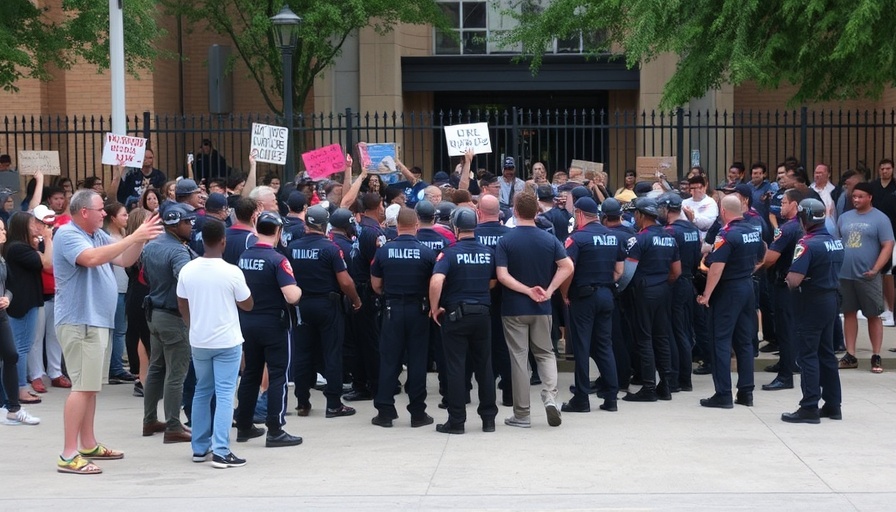
Unruly Protests Erupt Over Humanitarian Aid Concerns
In the heart of Dallas, protests erupted outside the county jail after the police arrested 12 demonstrators. The protesting group had made their way into the Boston Consulting Group's (BCG) office building, located at 2500 N. Hardwood Street, voicing their frustrations related to aid distribution in Gaza. The demonstrators, primarily comprising members of the Palestinian Youth Movement, assert that the newly created Gaza Humanitarian Foundation (GHF) does not effectively serve those in desperate need of assistance, rather it perpetuates suffering and dire conditions.
The GHF's Controversial Role
According to protester Sumayyah Chenault, the GHF has become a death trap for Palestinians seeking basic necessities, including food and baby formula. Nearly 200 aid organizations have issued a joint statement calling for the GHF to be dismantled. They argue that the foundation, supported by the U.S. and Israel, fosters a “cycle of desperation, danger, and death.” The GHF was established post-blockade, replacing earlier humanitarian aid channels that had been obstructed for over three months due to Israel's military actions.
Local Impact and Community Response
The implications of the GHF are felt deeply within the local community and beyond. As the demonstrators voiced their concerns, the police reported an escalation of tensions, as larger crowds gathered in support of the protest. This was not just an expression of dissent concerning a foreign humanitarian issue; it also stirred local dialogues about corporate responsibility, community engagement, and the ethical dimensions of businesses caught in political conflicts.
Media Representations and Corporate Accountability
BCG, the consulting firm at the center of this controversy, responded strongly to recent accusations regarding their involvement. They clarified that while two former partners did consult on the GHF project, it was not officially sanctioned, stating, "This work was not a BCG project. It was orchestrated and run secretly outside any BCG scope." Such disclaimers highlight the complex entanglements often unseen in corporate practices, particularly when they intersect with global humanitarian crises.
Future Trends: Protests in a Digital Age
The Dallas protests serve as a case study in how social movements are evolving in our digital age. Organizers leveraged social media platforms to galvanize support, escalating an issue of international concern right onto the streets of Dallas. In parallel, this highlights the role of technology in activism, suggesting that we may witness increased public mobilization around humanitarian issues, not just in the U.S., but globally. The ease of communication can amplify voices and bring immediate attention to complex issues but can also lead to challenges in controlling narratives.
What Comes Next: Community Engagement and Responsibility
As we move forward, the challenge lies in fostering constructive conversations around these complex issues. Both businesses and communities will need to engage meaningfully with dissenting voices, ensuring that community needs and humanitarian concerns are prioritized. Educational campaigns could bridge the gap between corporate responsibilities and community awareness, leading to more informed and engaged citizens.
Conclusion: Why Awareness is Key
Understanding the depth of the issues surrounding humanitarian aid is crucial. With businesses like BCG positioned at the crossroads of consulting and politically sensitive projects, the implications stretch far beyond their offices. The protests in Dallas serve as a reminder that community engagement, ethical responsibility, and humanitarian advocacy remain bustling topics that continue to deserve attention.
 Add Row
Add Row  Add
Add 




Write A Comment